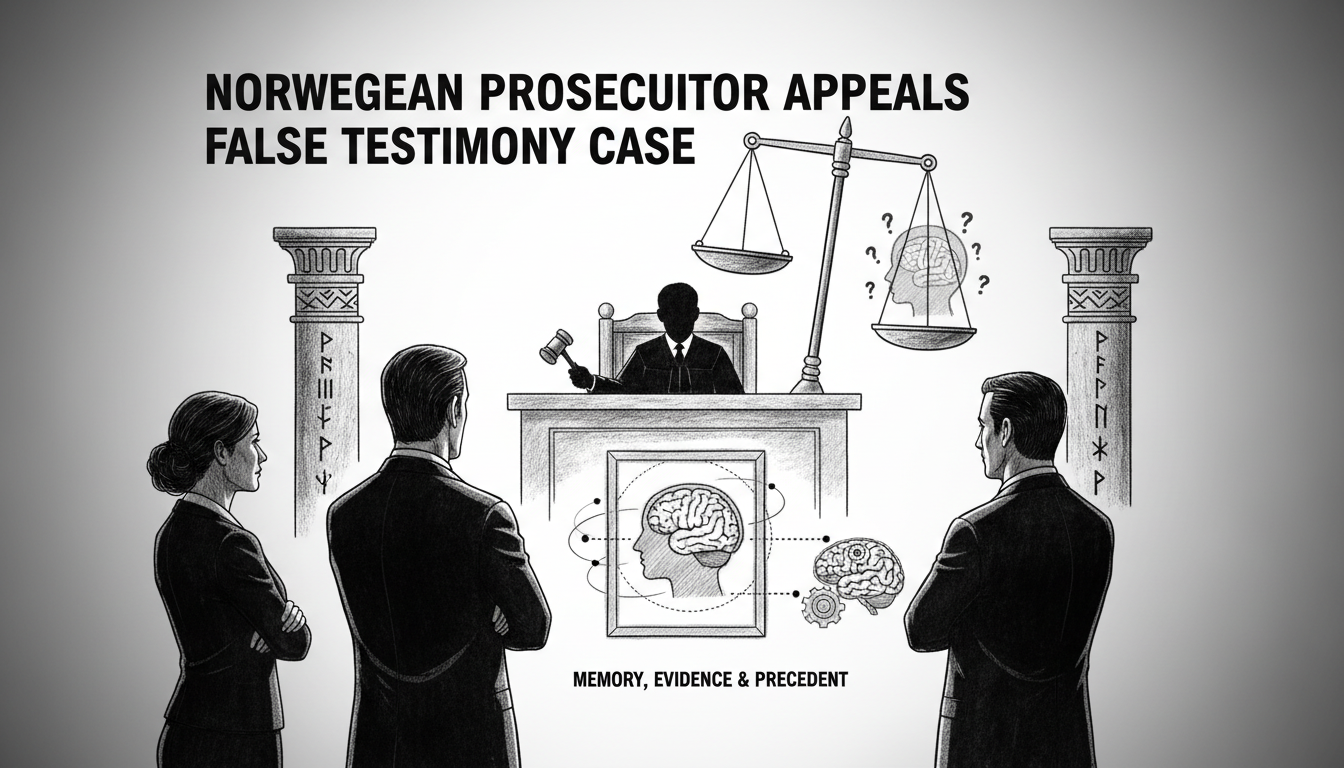A Norwegian state prosecutor has appealed the acquittal of Hamse Ali in a controversial false testimony case. The appeal focuses on how the court handled statements from a court-appointed psychological expert. That expert's testimony proved decisive in securing Ali's acquittal earlier this month.
Hamse Ali faced charges of giving false testimony about an alleged violent incident in Bergen's Nygårdsparken. Ali claimed six men attacked him while shouting racist slurs. Police investigation revealed this account did not match the evidence. The evidence instead suggested Ali fell from an electric scooter.
The case took a dramatic turn when a psychological expert testified during the trial. The expert suggested Ali's false statements could stem from fabricated memories. These memories might have formed after heavy alcohol consumption combined with head trauma.
This testimony completely changed the case direction. The police prosecutor who initially sought punishment for Ali then recommended acquittal. The court agreed and cleared Ali of all charges.
Now state prosecutors challenge this outcome. They argue the court made procedural errors in handling the expert's assessment. Prosecutors claim the psychological evaluation lacked proper quality assurance. Norwegian law requires such assessments undergo review by the Forensic Medicine Commission.
The appeal raises important questions about psychological testimony in Norwegian courts. How should courts evaluate expert opinions about memory reliability? What safeguards prevent faulty psychological assessments from influencing verdicts?
This case highlights the complex interplay between psychology and justice in Norway's legal system. The court initially found the expert testimony compelling enough to override contradictory evidence. Prosecutors now question whether proper procedures were followed.
The outcome could set important precedents for similar cases involving memory reliability. Norway's justice system increasingly relies on psychological expertise. This appeal tests the boundaries of that reliance.
International readers should understand Norway's legal landscape differs from common law systems. Norwegian courts actively investigate cases rather than just weighing opposing arguments. This investigative approach makes expert testimony particularly influential.
The appeal process will now move to a higher court. That court must decide whether the procedural issues warrant overturning the acquittal. The decision could take months as judges examine complex legal and psychological questions.
This case matters beyond its immediate participants. It touches on fundamental questions about memory, truth, and justice. The appeal's outcome could affect how Norwegian courts handle similar psychological testimony in future cases.

